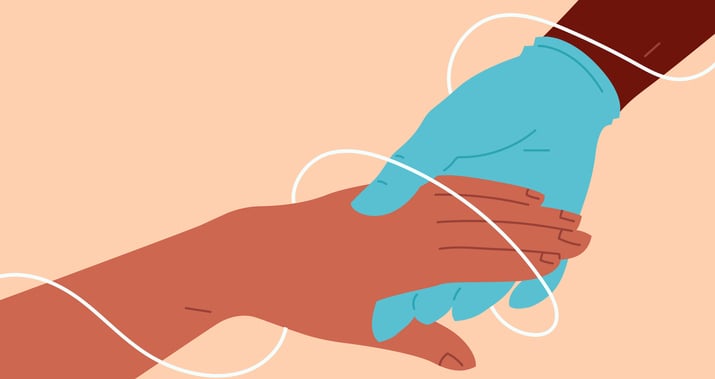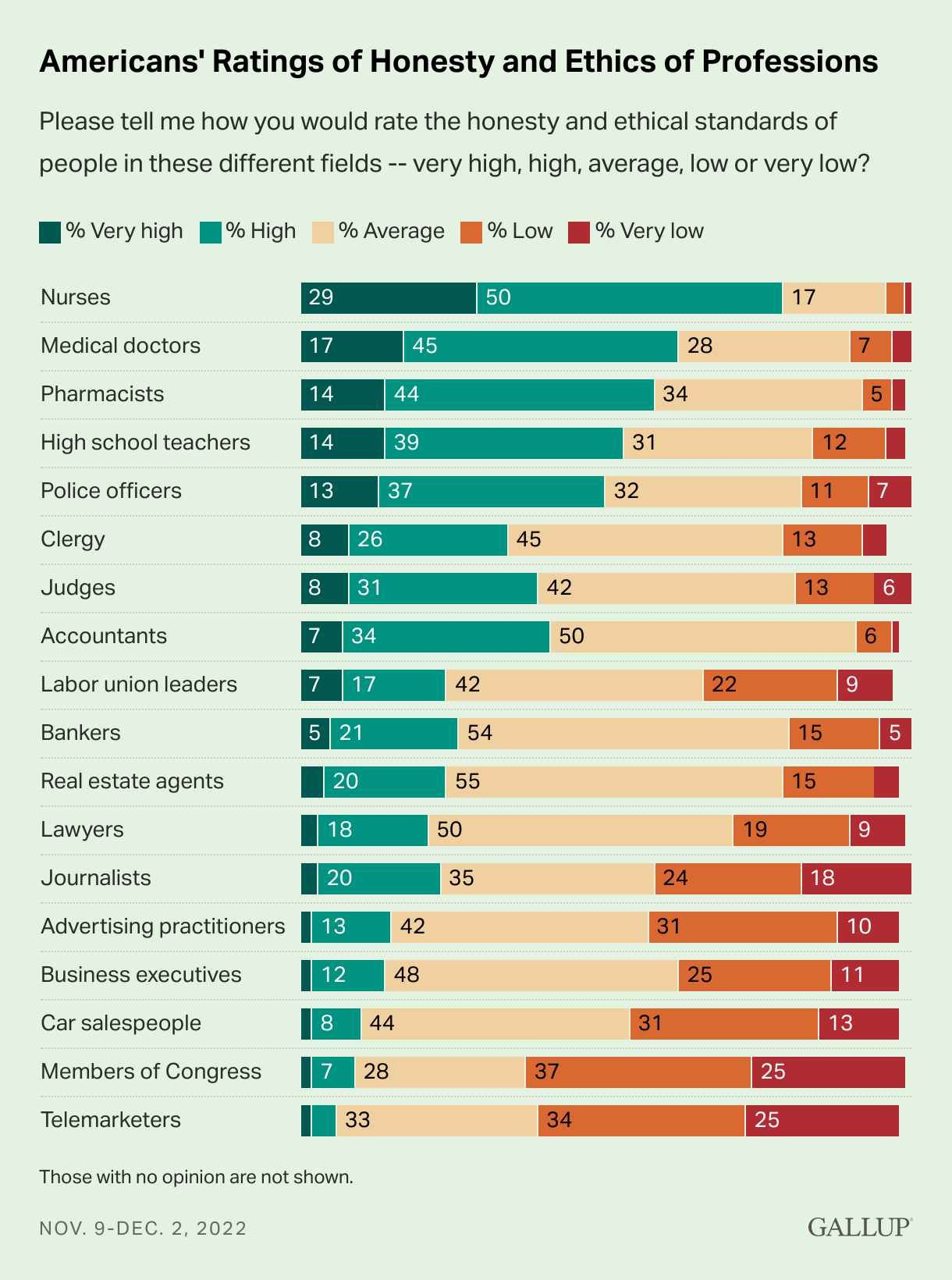 Nursing is a profession that requires compassion as well as expertise, making it both an art and a science. Empathy and compassion are critical characteristics of an excellent Nurse. These qualities help us to connect with patients on an individualized basis and improve patient outcomes.
Nursing is a profession that requires compassion as well as expertise, making it both an art and a science. Empathy and compassion are critical characteristics of an excellent Nurse. These qualities help us to connect with patients on an individualized basis and improve patient outcomes.
Nurses must also be educated, motivated, and have a strong understanding of evidence-based practice. Nurses must find a unique balance between using their heads and hearts, as well as the balance between the art and science of Nursing to provide our patients with the highest quality care.
The Art of Nursing
Florence Nightingale was the first to coin the phrase, the Art of Nursing. She understood that Nursing is a profession in which physical tasks must be adapted into individualized patient care, making Nursing an educated art form. Empathy and compassion are at the forefront of what makes Nursing an art. Although compassion and empathy are similar concepts, they are vitally different and often confused with one another.
Empathy is the ability to feel the emotions of others. As Nurses, we care for patients when they are most vulnerable. When patients seek medical attention, they can often be fearful, sad, or even angry. To care for these patients respectfully and efficiently, Nurses must be able to empathize with patients to facilitate a strong Nurse-patient relationship to promote healing.
Compassion is the ability to feel the emotions of others while experiencing a desire to help. Nursing is a helping profession and to be an excellent Nurse, you must genuinely want to help others. The task-oriented approach to Nursing can sometimes challenge Nurses to maintain a human connection to our patient. Still, we must always strive to connect with and understand our patients to ensure they are cared for comprehensively. The emotions behind why we do the things we do is what makes Nursing an artform.
The Science of Nursing
The science of Nursing is the ‘why’ behind the tasks we carry out daily. The Nursing profession is built on evidence-based practice. Evidence-based practice collects, processes, and implements research findings into clinical practice and improves patient outcomes.
As Nurses, we strive to provide our patients with the best care possible, so we must ensure that our actions and tasks are well researched and have been shown to improve the health and safety of our patients. This is what the science of Nursing is all about, having a reason behind our actions and an understanding that our interventions improve the outcomes of patients.
Education is also at the foundation of the science of Nursing. To become a Nurse, we must complete coursework that prepares us to meet the diverse needs of our patients and become safe healthcare professionals. Nursing coursework includes detailed education on the intricacies of the human body, disease processes, health policy, and hands-on instruction to develop clinical skillsets.
The nursing curriculum has been well studied and tailored to ensure that new graduate Nurses can provide safe patient care. We know that Nursing programs are effective in producing safe healthcare workers because we have been able to research and understand what education and skills are needed to produce safe novice Nurses.
Once a Nurse has graduated from a Nursing program, they must complete continuing education courses to continue to improve their knowledge and skills. And as medicine is constantly ever-changing, Nurses can never stop learning and growing.
The Nursing Profession
Nursing is not just a career option. It is a true craft where individuals must be able to incorporate evidence-based practices into compassionate and individualized patient care. It is truly a scientific art that must be carried out precisely and efficiently for our patients to receive the highest quality and most up-to-date care.
Nursing is as much of a science as it is an art. The science of Nursing explains a Nurse’s daily work and why tasks are performed, while the art of Nursing is centered around the human connections needed to truly be an effective Nurse.
The art and science of the Nursing profession is ever evolving as we are continually developing new healthcare interventions and continuing to improve upon our human approach to healthcare.
Nursing is a delicate balance of skill, expertise, compassion, and empathy. Without each other, the Nursing profession would not be the respected profession it is today.
 The Gallup polls are in and for more than two decades, Nurses have achieved the highest ethics rating from Americans.
The Gallup polls are in and for more than two decades, Nurses have achieved the highest ethics rating from Americans. 


 Thinking about changing careers? At any stage in life, N
Thinking about changing careers? At any stage in life, N
 What is Nursing Ethics?
What is Nursing Ethics? Across the entire patient experience, Nurses have a hand in almost every aspect of the patient's healthcare journey. Nurses are compassionate, and dedicated, and work tirelessly to meet the needs of their patients. Because Nurses are at the forefront of every patient interaction, there are many things that we wish our patients knew and understood about how we work and handle our everyday tasks.
Across the entire patient experience, Nurses have a hand in almost every aspect of the patient's healthcare journey. Nurses are compassionate, and dedicated, and work tirelessly to meet the needs of their patients. Because Nurses are at the forefront of every patient interaction, there are many things that we wish our patients knew and understood about how we work and handle our everyday tasks.  A career as a Nurse Case Manager gives you the opportunity to make a huge impact on patient's lives and develop rewarding relationships.
A career as a Nurse Case Manager gives you the opportunity to make a huge impact on patient's lives and develop rewarding relationships.  Being a parent and a Nurse are demanding roles and it may seem almost impossible to thrive and manage both at the same time, but it is possible! If you're a parent in the Nursing field consider these tips below.
Being a parent and a Nurse are demanding roles and it may seem almost impossible to thrive and manage both at the same time, but it is possible! If you're a parent in the Nursing field consider these tips below.  Nursing is a profession that requires compassion as well as expertise, making it both an art and a science. Empathy and compassion are critical characteristics of an excellent Nurse. These qualities help us to connect with patients on an individualized basis and improve patient outcomes.
Nursing is a profession that requires compassion as well as expertise, making it both an art and a science. Empathy and compassion are critical characteristics of an excellent Nurse. These qualities help us to connect with patients on an individualized basis and improve patient outcomes.  While physical health is undoubtedly important, so is Mental Health. Millions of Americans are affected by mental illness each year. Psychiatric Nurses have the specialized knowledge and skills needed to treat these
While physical health is undoubtedly important, so is Mental Health. Millions of Americans are affected by mental illness each year. Psychiatric Nurses have the specialized knowledge and skills needed to treat these 
